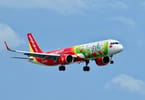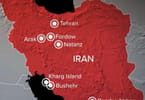India’s aviation industry is set to turn into a major employer once again.
If both the Delhi-based low-cost airlines — SpiceJet and IndiGo — are planning to hire more than 1,000 people during this year, the Mumbai-based full service carrier, Jet Airways will require over 300 pilots in the next three to five years.
The President, IndiGo, Mr Aditya Ghosh, told Business Line that the airline will be adding between 1,000 and 1,200 staff members during this calendar year. “We will be hiring close to 400-500 cabin crew and about 400-odd airport personnel,” he said. Mr Ghosh, however, refused to speculate on how many people the airline will hire when it starts inducting the 180 Airbus aircraft that it has ordered.
Similarly, SpiceJet plans to hire 1,000 crew and 40 pilots, while Air India Express plans to hire about 700 persons. It may be recalled that about three years ago some airlines had to prune their staff strength due to weak passenger demand and rising input costs.
Thespurt in activity at present has to do with the increase in number of domestic passengers flown on a monthly basis compared with the previous year. Since this trend is expected to continue over the next few years, most airlines are taking steps to capture a larger share of the pie. This includes not only hiring more support staff but also inducting more aircraft into their fleets.
Fleet expansion
While IndiGo plans to acquire 180 Airbus aircraft, Jet Airways has an order book of 49 aircraft which will be a mix of both Airbus and Boeing. In July last year, SpiceJet had signed a deal with Boeing to acquire 30 Boeing 737 at an estimated value of $2.7 billion.
“From the demand side, the Indian market is well positioned for growth for the next three to five years. The air traffic demand is likely to remain strong on the back of growth in the Indian economy, high disposable incomes and rising middle class aspirations.
“A majority of the air traffic still comes from the top six to eight metro destinations and has not extended to the tier-2 and -3 cities. However, with privatisation of 35 non-metro airports that scenario should change,” Mr Kapil Arora, Partner, Ernst & Young, said.
WHAT TO TAKE AWAY FROM THIS ARTICLE:
- Thespurt in activity at present has to do with the increase in number of domestic passengers flown on a monthly basis compared with the previous year.
- If both the Delhi-based low-cost airlines — SpiceJet and IndiGo — are planning to hire more than 1,000 people during this year, the Mumbai-based full service carrier, Jet Airways will require over 300 pilots in the next three to five years.
- The air traffic demand is likely to remain strong on the back of growth in the Indian economy, high disposable incomes and rising middle class aspirations.






















